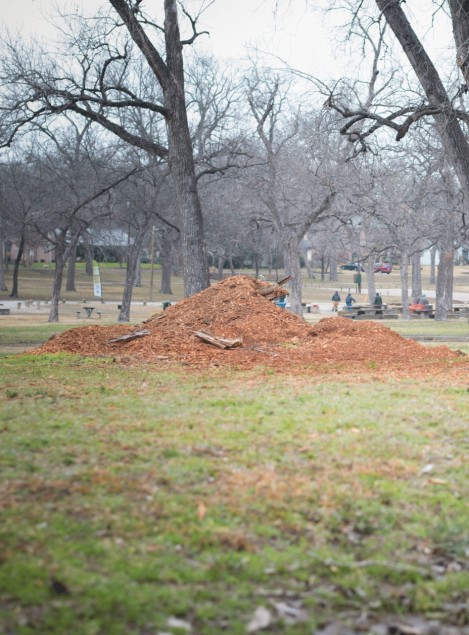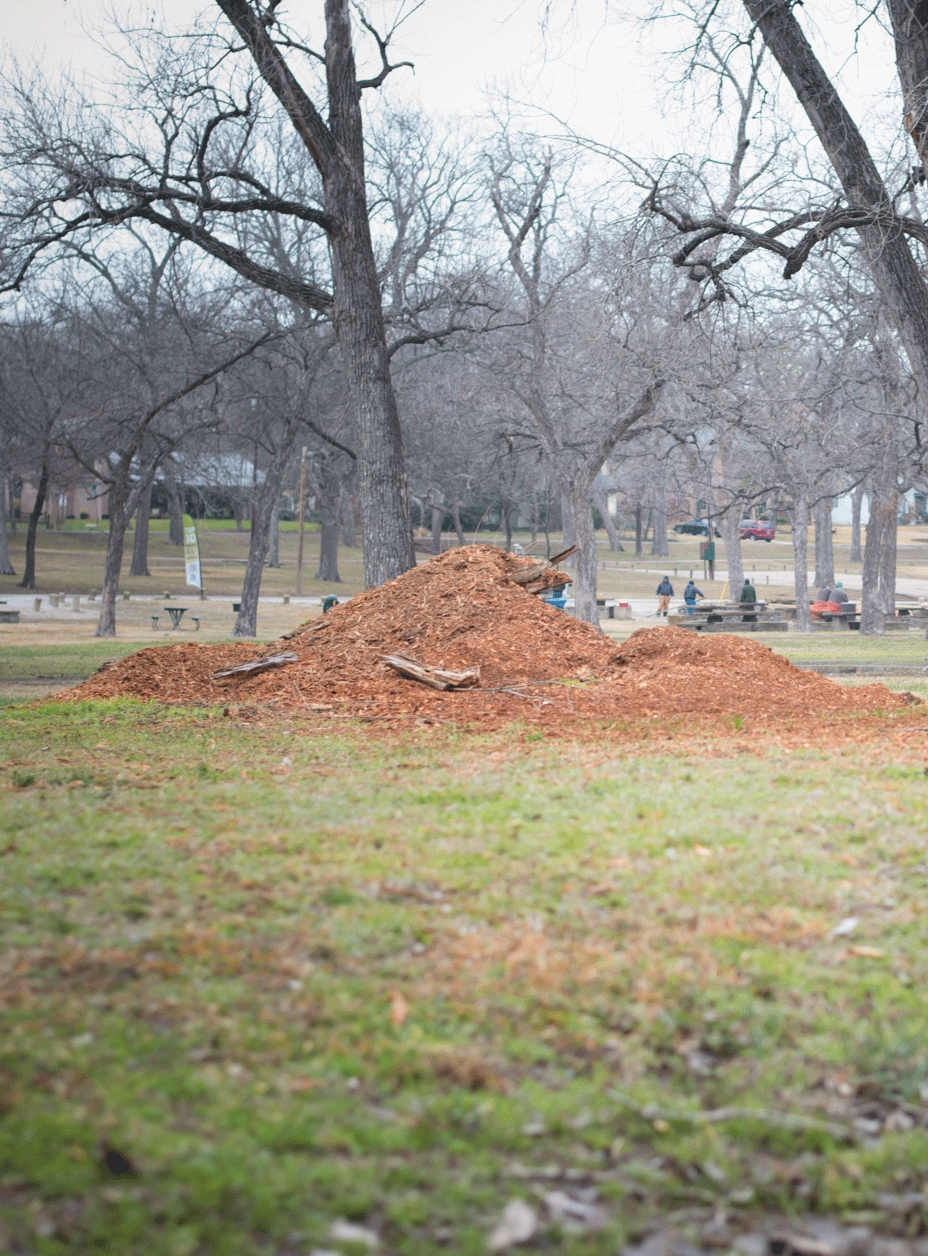
Zac mentioned yesterday that he found it odd that at a meeting of the Texas Trees Foundation, the director of Dallas’ Park and Recreation Department, Willis Winters, said a few words but didn’t address the controversy over the recent accidental destruction of a 170-year-old state champion black willow at White Rock Lake. I got Winters on the phone late yesterday to talk about the poor tree and how the accident happened. I confess that when I received the news release from the city, I was outraged — though I promise I was (mostly) kidding when I suggested that the guy who cut down the tree should be disemboweled, in accordance with an ancient German law. After talking to Winters, my white-hot rage has subsided, becoming something a lot less Teutonic.
First, there was talk that a mated pair of owls was nesting in the tree. To Winters’ knowledge, there were no owls nesting in the tree when it was destroyed.
There was also talk that the tree was destroyed because it had been marked by city staff with a blue “X.” Not true, says Winters. Early last year, a city forestry guy did mark some trees with a blue “X” that he felt were unsafe structurally and needed to be evaluated. That’s not the way it is supposed to work. Winters says no one should be spray painting living trees for any reason. The city’s forestry guy has been disciplined. The black willow in question did have a blue “X” on it, but that’s not why contractor cut it down.
The contractor was Crews Service Company, out of Missouri. Some folks were upset by this. “Here’s an out-of-state guy with no connection to Dallas. He doesn’t care about the damage he leaves behind!” Sentiments along those lines. Winters tells me that this guy has been grinding stumps for the city for about 15 years. He charges $20 per stump to do a job that the city isn’t eager to take on (dangerous, requires a big machine). The guy comes through town once a year and grinds 1,250 stumps, give or take.
At White Rock, they try to be very careful. The guy had a map of the stumps he was supposed to take out. At the Stone Tables area, there were nine stumps that needed to go. Near those nine stumps, he saw the black willow and took it upon himself to eliminate it. Winters says the guy thought he was doing the city a favor.
“But it was a champion tree on the state registry!” Yes, it was. But here’s what the initial release from the city didn’t make clear: this tree was in really bad shape. When it made the state registry, it had a forked trunk and was structurally unstable. A 2013 storm took down one of the forks; another storm last October took off the other fork. The tree was still alive, and it had sprouted some wispy branches. Too, it was a wildlife habitat. It should not have been taken down. But the thing only stood about 8 feet tall when the contractor mistakenly finished it off.
Winters says better controls have already been put in place to prevent such a mistake from happening again. The contractor will only grind stumps that are 18 to 24 inches high. Those stumps will be marked by red non-water-based paint. And at sensitive areas like White Rock, city staff will do a walk-through with the contractor before he begins his work.
Finally, there’s the matter of a promise that Winters made. Last month, at a ceremony to celebrate the beginning of a restoration project at the Stone Tables picnic grounds, a man named Ben Sandifer took Winters aside to point out the black willow. Sandifer runs the Dallas Trinity Trails blog. Don’t call him an environmentalist. He hates it when people do that. But he does care about trees. And Winters made Sandifer a promise about the black willow.
“I gave him my assurance that the Park Department would not take it out, that it would be protected. And we failed to protect it,” Winters says. “It was a very unfortunate situation. It’s hard to blame the contractor because he has done such a good job and thought he was doing the city a favor. I, personally, am saddened by it. I made a commitment to Ben and others. This unfortunately occurred. It’s just a very, very unfortunate situation. No excuses. It shouldn’t have happened. But it did, and I feel terrible. And we’ve already instituted stronger controls to make sure it doesn’t happen again.”
Here’s how I view the situation: you’ve got the sort of gross negligence that the city has exhibited in the construction of the Trinity golf course. And then you’ve got this accident with the black willow. The two incidents exist on the same spectrum, but there’s quite a bit of distance between them. The former is hard to fathom. The latter is something I think any of us could find an analogous situation to at our places of employment. No disembowelment necessary this time. But let’s be more careful next time, eh?





